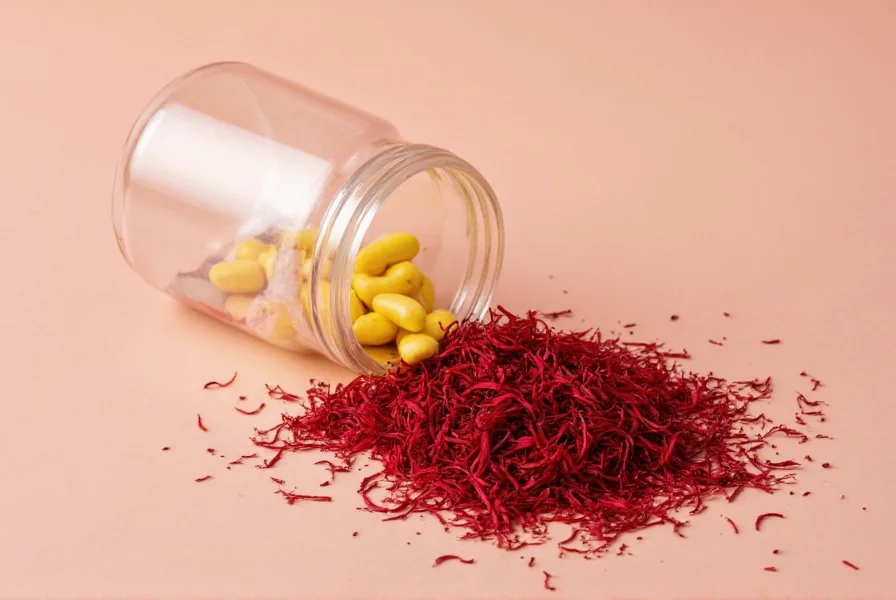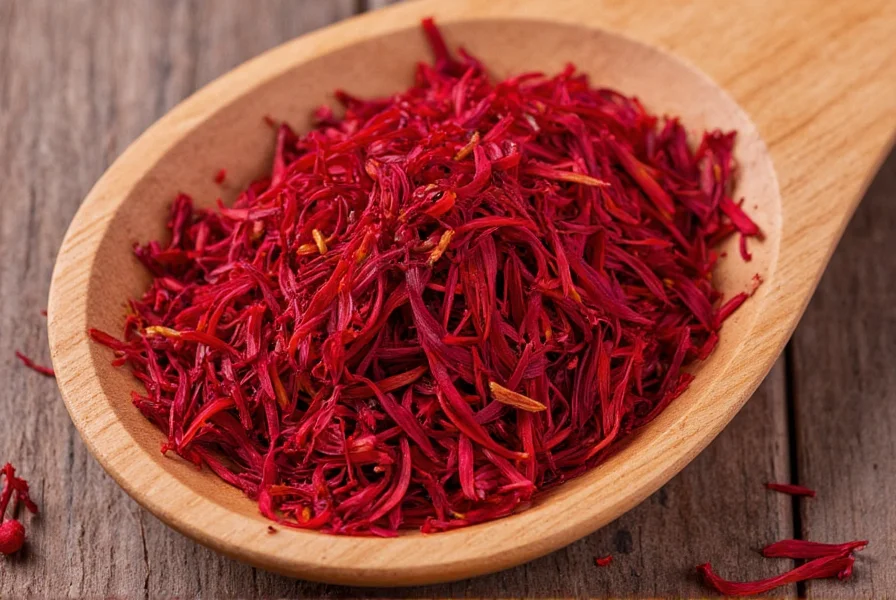Saffron, derived from the Crocus sativus flower stigma, has transitioned from ancient spice to scientifically studied supplement. Modern research validates several health applications of saffron supplements, particularly when using standardized extracts containing key bioactive compounds like crocin and safranal. Unlike culinary saffron, supplements provide concentrated doses necessary for therapeutic effects.
What Makes Saffron Supplements Unique
Saffron's value comes from its rare bioactive compounds. Crocin (responsible for saffron's red color) and safranal (providing its distinctive aroma) represent the primary components studied for health benefits. Quality supplements standardize these compounds to ensure consistent potency. Unlike many herbal supplements, saffron has substantial clinical research supporting specific applications.

Scientifically Supported Saffron Supplement Benefits
Mood Enhancement and Depression Support
Multiple randomized controlled trials demonstrate saffron supplements for depression can be as effective as conventional antidepressants for mild-to-moderate cases. A 2019 meta-analysis in Phytotherapy Research reviewed 9 studies involving 541 participants, finding saffron extract (30 mg daily) significantly reduced depression scores compared to placebo. Both the petal and stigma extracts showed efficacy, suggesting multiple components contribute to this effect.
Researchers believe saffron influences serotonin, dopamine, and norepinephrine systems. Unlike pharmaceutical antidepressants, saffron supplements typically show fewer side effects, making them appealing for those seeking natural mood support options.
Age-Related Eye Health Protection
Saffron supplements benefits extend to retinal health. Studies indicate crocin may protect photoreceptors from damage and improve retinal blood flow. A 2021 study published in Antioxidants followed participants with early age-related macular degeneration taking 30 mg of saffron daily. After 90 days, researchers observed measurable improvements in retinal function and visual acuity.
The antioxidant properties of saffron compounds help combat oxidative stress in retinal cells, potentially slowing progression of certain eye conditions. This represents one of the most promising saffron extract benefits for eye health currently under investigation.
Weight Management Support
Research suggests saffron supplements may help control appetite and reduce snacking. A 2010 study in Nutrition Research found participants taking saffron extract experienced reduced hunger and fewer episodes of compulsive eating compared to placebo. The mechanism appears related to saffron's influence on serotonin levels, which helps regulate mood and appetite.
| Benefit Area | Effective Dosage | Timeframe for Results | Key Research Findings |
|---|---|---|---|
| Mood Support | 30 mg standardized extract daily | 4-8 weeks | Comparable efficacy to SSRIs for mild-moderate depression |
| Eye Health | 20-30 mg daily | 3 months | Improved retinal function in early AMD |
| Appetite Control | 176.5 mg extract twice daily | 8 weeks | Reduced snacking frequency by 55% |
How Saffron Supplements Work
The therapeutic effects of saffron stem from its unique biochemical profile. Crocin demonstrates potent antioxidant and anti-inflammatory properties, while safranal modulates neurotransmitter activity. These compounds work synergistically to influence multiple physiological pathways. Unlike single-compound pharmaceuticals, saffron's multi-target approach may explain its broad therapeutic potential with minimal side effects.
Dosage Guidelines Based on Clinical Evidence
Research indicates effective saffron supplements dosage ranges between 20-30 mg daily of standardized extract for mood and eye health benefits. For weight management, studies have used higher doses (up to 176.5 mg twice daily). Most clinical trials use extracts standardized to contain 2% safranal, 2.8% picrocrocin, and 1.6% crocin.
It's important to note that culinary saffron cannot provide these therapeutic doses - you would need to consume impractical amounts (several grams daily) to reach equivalent levels. This explains why standardized supplements represent the only viable option for therapeutic applications.
Safety Profile and Potential Side Effects
Saffron supplements side effects are generally mild when taken at recommended doses. Some users report dry mouth, anxiety, dizziness, or nausea. High doses (exceeding 1.5 grams daily) may cause more serious effects including vomiting, dizziness, and in extreme cases (5+ grams), poisoning.
Pregnant women should avoid high-dose saffron supplements as it may stimulate uterine contractions. Those taking antidepressants should consult healthcare providers before combining with saffron due to potential serotonin effects. The generally recognized safe dose for most adults is 30 mg or less of standardized extract daily.

Selecting Quality Saffron Supplements
Not all saffron supplements deliver equal benefits. Look for products that:
- Specify standardized extract content (particularly crocin and safranal percentages)
- Provide third-party testing verification
- Contain 20-30 mg per serving for mood/eye health applications
- List the specific Crocus sativus extract used
- Include transparent manufacturing information
Avoid products with exaggerated claims like "cures depression" or "reverses macular degeneration." Reputable saffron supplements make evidence-based claims reflecting actual research findings. Price often correlates with quality - extremely cheap supplements likely contain insufficient active compounds.
Realistic Expectations for Saffron Supplement Benefits
While research on saffron supplements shows promise, it's not a miracle cure. Benefits typically develop gradually over weeks, not days. For mood support, it may work best for mild-to-moderate symptoms rather than severe depression. For eye health, it appears most beneficial in early stages of conditions rather than advanced disease.
The most consistent saffron supplements benefits appear in three areas: mood regulation, retinal protection, and appetite control. Other claimed benefits require more research. When considering saffron supplements for specific health concerns, consult healthcare providers to determine if they might complement your overall health strategy.











 浙公网安备
33010002000092号
浙公网安备
33010002000092号 浙B2-20120091-4
浙B2-20120091-4